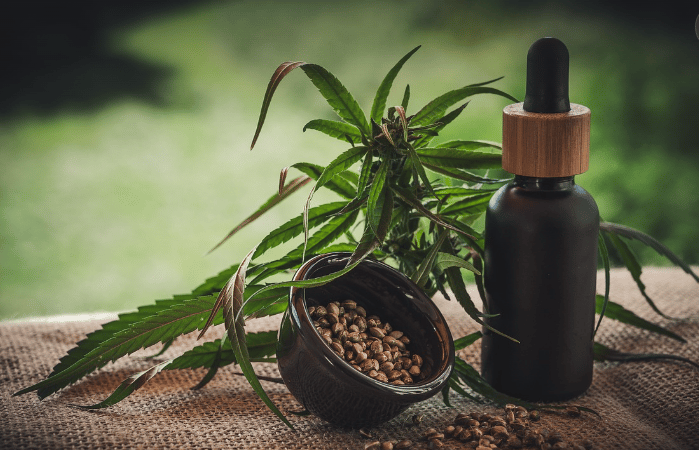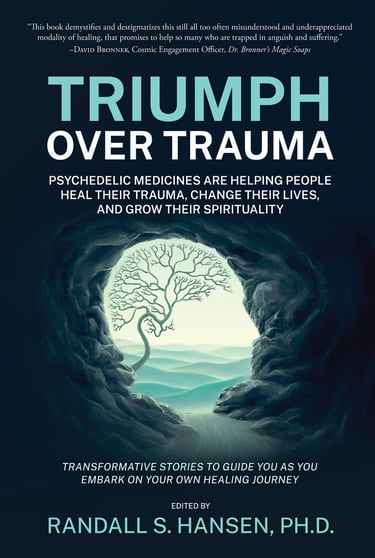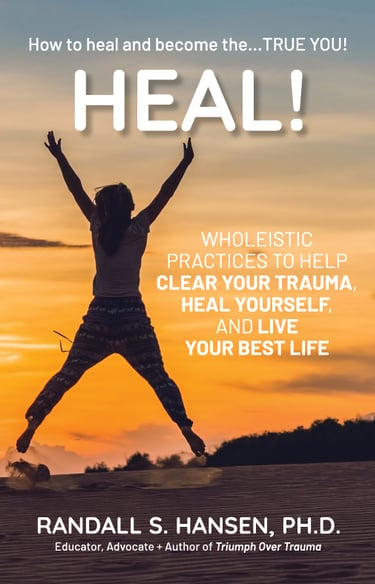Five Healing Benefits of Cannabis
Are you still on the DARE bandwagon? The "Just Say No" campaign? Well, time to update your thinking and look beyond the parental government's fears and misgivings and examine the medical and healing aspects of one of the oldest plant medicines -- used for centuries by indigenous peoples -- cannabis.
Cannabis (and the cannabinoids within it) is being touted as a miracle drug and a natural cure for many conditions and ailments, but please do your research before diving into this plant medicine.
Cannabis is the name used for two varieties of the Cannabis Sativa plant; hemp plants (that contain less than .3 percent THC) and cannabis plants that contain higher (pun intended) amounts of THC (and less CBD), often referred to as marijuana.
CBD -- or cannabidiol -- is one of more than 540 phytochemicals found in cannabis, and researchers are continuing to find new versions of cannabinoids that provide a multitude of benefits. THC (delta-9-tetrahydrocannabinol) is the element that gets users feeling "high." (Interestingly, there are more than 100 known cannabinoids found in the cannabis plant -- and each offers potential health benefits.)
The Federal Government regulates both cannabis varieties: THC cannabis plants are illegal at the federal level, but "legal" in a growing number of states, either medically or recreationally; the CBD cannabis plants (hemp) are federally legal under the 2018 Farm Bill that removed hemp from the legal definition of marijuana (THC cannabis).
Living in a state where THC cannabis is legal, I have to say I actually prefer the CBD products derived from the hemp plants. My goal is not getting a high, but obtaining health benefits, and CBD offers a growing list of benefits by working through our endocannabinoid system -- signaling molecules that help regulate various processes, such as pain, memory, mood, immunity, and stress.
Five Healing Benefits of CBD
1. Pain and Inflammation Reduction. CBD has been proven to help reduce inflammation and the neuropathic pain it can cause. Clinical studies have confirmed that CBD reduces the levels of pro-inflammatory cytokines and inhibits T-cell proliferation.
2. Addiction Management. CBD has been found useful in helping people who suffer from drug and alcohol addiction by reducing drug craving and anxiety in recovering patients.
3. Depression and Anxiety. CBD has been shown to be effective in treating generalized anxiety disorder, panic disorder, social anxiety disorder, obsessive-compulsive disorder, and post-traumatic stress.
4. Calmness of Mind and Deeper Sleep. CBD helps calm down the mind and gets it into a rest and digest state. A calm mind leads to a deeper sleep -- which has many of its own health benefits.
5. Neuroprotection. Several studies suggest cannabis can help protect people from neurodegenerative diseases, including Alzheimer's, ALS, Huntington's, Multiple Sclerosis (MS), and Parkinson's.
Other promising benefits of CBD include anti-seizure and anti-cancer properties -- as well as helping with GI disorders (such as irritable bowel syndrome (IBS), inflammatory bowel disease (IBD), Crohn's, and ulcerative colitis). There's also growing evidence that cannabinoids can help fight certain types of cancers. Finally, there's also evidence that cannabis has a direct impact on regulating insulin and blood sugar, which can have an impact on weight loss and diabetes.
Types of CBD Available
Depending on your need, CBD comes in a variety of options, from topical to internal, including:
CBD Ointments/Creams/Roll-ons
CBD Oil
CBD Gummies/Edibles
CBD Capsules
CBD Tinctures/Sprays
CBD Flowers for Vaping/Smoking
CBD Drinks
Favorite CBD Retailers
As you might guess, I am an avid advocate for cannabis -- and specifically CBD -- for healing. Plant medicines offer so many benefits with little side effects. Because I am such an advocate, I have tried CBD from a variety of sources -- and while I am not receiving any compensation here -- wanted to share some of my favorite products and retailers. Of course, do your research and experiment and find what works best for you.
Note that at the time of this post, there are about 10 states that block access to these wonderful CBD products. Each of these retailers clearly show where they can ship their products.
Royal CBD: Has a very effective CBD Roll-on Gel in Icy Menthol. Great for aching muscle and joints.
Charlotte's Web: Hemp Extract CBD Oil. Great for stress reduction, sleep.
Green Gorilla Organics: Sleep Capsules. Contains a blend of full spectrum CBD, as well as tryptophan, chamomile, and vitamin B-6 for deep and prolonged sleep.
Finally, for pet-lovers: there are many CBD treats for animals, especially for older pets and those suffering with anxiety. Since I don't have a pet, I can't offer any recommendations.
For Further Information About the Benefits of Cannabis/CBD


Dr. Randall Hansen is an advocate, educator, mentor, ethicist, and thought-leader... helping the world heal from past trauma. He is founder and CEO of EmpoweringSites.com, a network of empowering and transformative Websites, including EmpoweringAdvice.com.
He is the author of the groundbreaking Triumph Over Trauma: Psychedelic Medicines are Helping People Heal Their Trauma, Change Their Lives, and Grow Their Spirituality and the well-received HEAL! Wholeistic Practices to Help Clear Your Trauma, Heal Yourself, and Live Your Best Life.
Dr. Hansen's focus and advocacy center around true healing ... healing that results in being able to live an authentic life filled with peace, joy, love. Learn more by visiting his personal Website, RandallSHansen.com. You can also check out Dr. Randall Hansen on LinkedIn.






